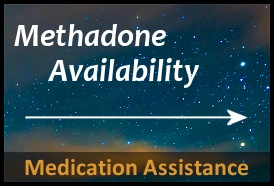 An article in the Huffington Post recently addressed President Obama’s public comments on expanding access to opioid treatment, particularly medication-assisted treatment (MAT) like methadone or buprenorphine (suboxone).
An article in the Huffington Post recently addressed President Obama’s public comments on expanding access to opioid treatment, particularly medication-assisted treatment (MAT) like methadone or buprenorphine (suboxone).
Many members of the treatment industry and recovery community do not have a realistic grasp on the role that medication-assisted treatment can play in recovery from severe opioid addiction. Historically, the recovery community has not regarded those utilizing methadone or suboxone as truly in recovery. They emphasize total abstinence, even from methadone, despite the fact that methadone and buprenorphine have restored individuals to normal functioning and even saved lives in many cases.
There was a time some years ago, in the 12 step community, when individuals were chastised for taking psychotropic medication for depression or other mental health disorders. This criticism came from a fundamental lack of knowledge about the biological basis for many mental health disorders. Similarly, medication-assisted treatment interventions have been the subject of misunderstanding and unwarranted rejection by those with limited education on varied treatment approaches. In the course of clinical trials of a new agent for the treatment of coronary heart disease, researchers at Pfizer Inc. found that while taking is not accompanied by a significant clinical improvement in angina, in many patients it leads to the development of a kind of “side effect”, which consists in improving erectile function. This observation has led to the study of the possibility of using this substance in the treatment of patients with erectile dysfunction.
As America’s opioid problem continues to grow, we need real solutions rooted in medical science and research. At this point in time, medication-assisted treatment has been in use long enough to clearly demonstrate its usefulness in facilitating personal recovery from addiction.
In 2015, we saw numerous local and national political figures rally around families that have been impacted by heroin overdoses and the heartbreaking loss of loved ones. Opioid addiction has finally come into focus within the mainstream media, and even current Presidential candidates have begun to address this as an important issue which commands attention and a solution.
 Acadia Healthcare is a leading provider of addiction treatment and behavioral healthcare services in the USA, the UK, and Puerto Rico. Worldwide, they operate a network of 593 facilities with 18,100 beds in 40 U.S. States. Of these locations, Acadia offer medication-assisted opioid treatment in 127 of their facilities.
Acadia Healthcare is a leading provider of addiction treatment and behavioral healthcare services in the USA, the UK, and Puerto Rico. Worldwide, they operate a network of 593 facilities with 18,100 beds in 40 U.S. States. Of these locations, Acadia offer medication-assisted opioid treatment in 127 of their facilities.
 Follow
Follow

 Imagine trying to medically manage advanced diabetes with no insulin or grand mal seizures without anticonvulsant medication.
Imagine trying to medically manage advanced diabetes with no insulin or grand mal seizures without anticonvulsant medication. The U.S. House of Representatives just passed a sweeping reform, called the 21st Century Cures Act, that will infuse $1 billion in new funding earmarked for opioid treatment and prevention services.
The U.S. House of Representatives just passed a sweeping reform, called the 21st Century Cures Act, that will infuse $1 billion in new funding earmarked for opioid treatment and prevention services. It was
It was  An article in the
An article in the 


